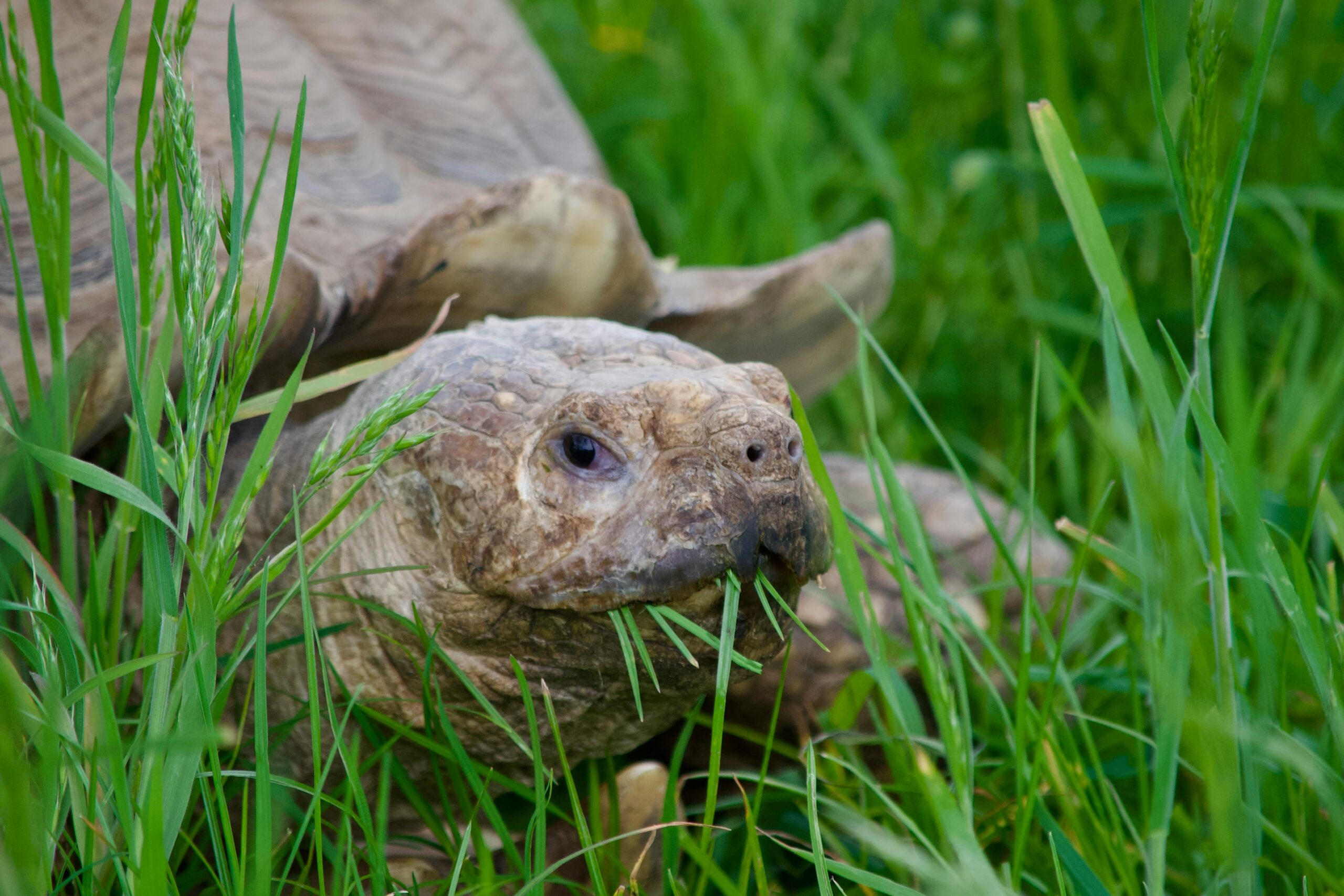Tortoises have varied sleep patterns depending on species, age, environment, and individual health. On average, tortoises sleep for about 12 hours each day. However, there are some specific factors How Long Does A Tortoise Sleep.

Factors Affecting Tortoise Sleep.
1. Species.
Different species have different sleep requirements. For instance, desert tortoises, which are active during the cooler parts of the day, might sleep longer during the hotter periods to avoid heat stress.
2. Age.
Younger tortoises and hatchlings tend to sleep more than adults, as they need extra rest for growth and development.
3. Environment.
The habitat plays a crucial role in determining sleep patterns. In the wild, tortoises might have different sleep durations compared to those kept in captivity. Factors such as light exposure, temperature, and humidity can influence their sleep.
4. Seasonal Changes.
Tortoises often have seasonal sleep patterns. During colder months, some species enter a state of brumation (similar to hibernation) where their activity levels significantly drop, and they may sleep for extended periods, sometimes several days or even weeks.
5. Health.
A healthy tortoise will have a more regular sleep pattern. Illness or stress can disrupt their normal sleep cycle.

Must Check This:- 10 Foods That Will Help You Sleep Better At Night
Typical Sleep Duration.
Daily Sleep
- Average: Around 12 hours
- Range: 10-14 hours depending on the species and individual needs
Seasonal Sleep (Brumation)
- During colder months, some species may sleep for extended periods. This can vary greatly, with some tortoises sleeping almost continuously during brumation.

You Know? :- Why Does My Cat Sleep At My Feet
Ensuring Proper Sleep for Pet Tortoises.
For pet tortoises, creating an environment that mimics their natural habitat is essential for proper sleep:
- Lighting: Ensure they have a consistent light-dark cycle, with about 12 hours of light and 12 hours of darkness.
- Temperature: Maintain appropriate temperatures for their species, with cooler temperatures at night.
- Habitat: Provide hiding spots and a substrate that allows them to burrow if they feel the need.

Monitoring Sleep.
Regularly observe your tortoise’s sleep patterns. If you notice significant changes or if your tortoise is sleeping much more or less than usual, it could be a sign of a health issue, and a veterinarian should be consulted.
Understanding and catering to your tortoise’s sleep needs will help ensure they remain healthy and active.

